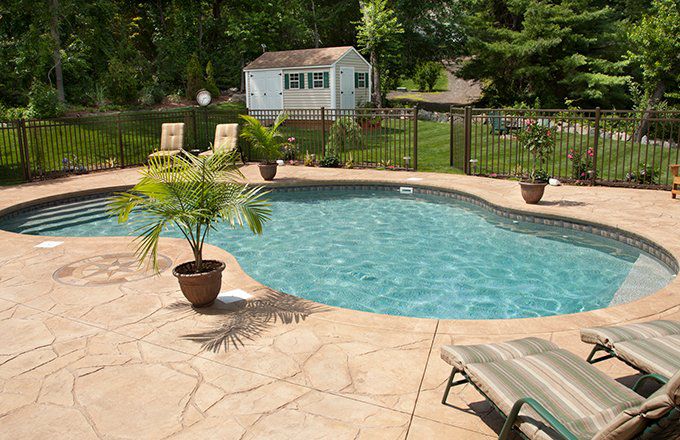Regular maintenance is one of the tedious responsibilities of pool owners. While the time spent enjoying the water is nothing like the work it takes to prepare it, a well-kept swimming area is always worth the trouble.
Pool owners know that as the seasons change, so does the proper care needed for swimming areas. Extreme weather will affect the condition of the water and its surroundings. It’s best to prepare for the shift in temperature to keep your pool in good shape so that people can enjoy its utility when spring comes back around.
So when should you start preparing your pool for the winter season? Ideally, as the temperature gradually decreases until around 18 degrees celsius and under, that’s the best time to start closing off your pool for winter.
Here are the five things pool owners should do before the winter comes.
Assess Your Pool
It might be tempting to go straight to the cleaning process, but to thoroughly prepare your pool for winter, it’s better to assess it carefully first. This step will let you find any trouble areas and aspects you need to focus on when you finally start. If your pool needs additional repairs or tweaking, you can have it addressed immediately instead of finding out later on. You can also acquire the help of pool professionals if you want an in-depth cleansing or if you lack time. Otherwise, this is still something you can do on your own. It would also be a good idea to reach out to pool cover experts – such as Pool Cover Systems – to find out exactly which pool cover and roller is best for your unique situation.
Get All The Right Cleaning Materials And Equipment
Now that you have assessed the overall condition of your pool, you get a clearer picture of how to get it ready for colder temperatures. A common mistake pool owners make repurposing household cleaning items when preparing their pools for winter. This practice makes for ineffective and partial effort.
Proper pool cleaning materials include:
- Skimmer nets
- Pool brush (type of brush will vary depending on the material of the pool).
- Telescopic pole
- Pool vacuum
- Pool filters
- Strong chemical cleaning agents (pool enzymes, sanitizers, algaecide)
Start Cleaning
The first step is to clean the pool physically. Before you begin, make sure that the surroundings are relatively neat so that nothing will interfere with the process. Start removing the unwanted debris with the skimmer net, then proceed to scrub the floor and sides with the pool brush. As the dirt surfaces or is detached, use the vacuum to suck out all the impurities. While you’re at it, also clean the filters and any other pool equipment or machinery involved.
Balance Your Pool And Add The Chemicals
Your pool may look clean after the initial cleaning, but there are additional steps to maintain and protect it for winter. Drain your pool so that it does not exceed the right level for winterization. Higher levels of water will freeze as the temperature drops and can damage the material on the brim of the pool. On the other hand, an unfilled pool can also pressure the pool cover and ruin its structure.
When your water is at the right amount, test it with a pool kit. The goal is to have the pH, minerals, and alkaline balanced to have it in good condition until opened back up. Smart water monitors can also help in balancing the chemical levels.
To avoid algae and bacterial growth, finally, add the pool chemicals according to their instructions. Pool enzymes, algaecide, and metal sequestrants, to name a few, prevent the buildup of bacteria and calcium hardness as the water freezes. Pool antifreeze, while optional, will significantly benefit inground pools and keep their pipes from breaking at lower temperatures. Do not forget to check on it from time to time.
Cover It Up
Once your pool is clean both physically and chemically, you can now cover it up for winter. Make sure the winter cover you have is the right size and material. Place on top of the pool tightly to protect it from harsh conditions and debris. When everything is secure, you can now leave it and enjoy the wintertime.
For additional maintenance, if you can, check up on your pool every few weeks during winter. Smart pool products can also help take care of your pool. Settings include winter mode and pool alarms. They alert the owner of any disturbances or interactions with the water and maintain levels in extreme weather.
